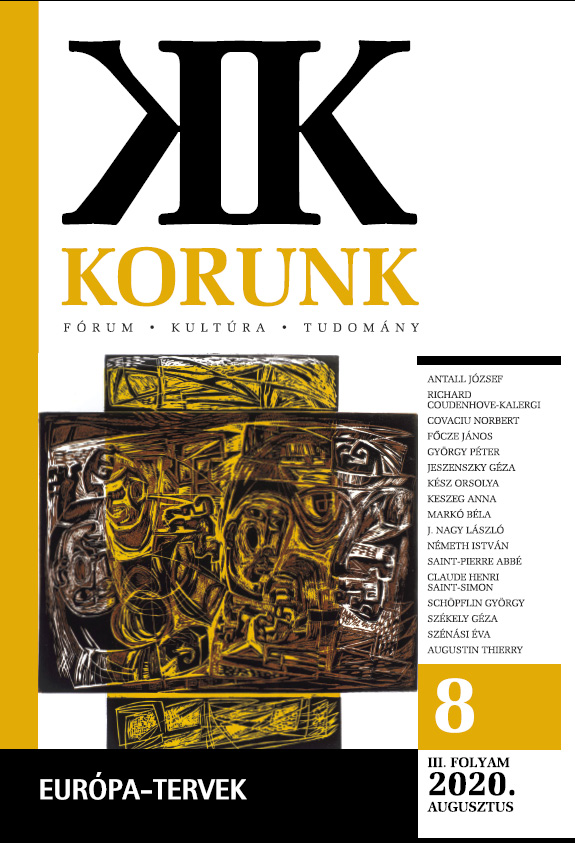Mit várt Európától az Antall-kormány?
What the Antall-government (1990-1993) Expected From Europe?
Author(s): Géza JeszenszkySubject(s): History of European Union
Published by: Korunk Baráti Társaság
Keywords: Hungary; Antall-government; Europe
Summary/Abstract: This essay, written by the foreign minister of the government under discussion (a historian by profession) recounts that by the adoption of Christianity in A. D. 1000 the Kingdom of Hungary became an integral part of what was called (until recently) Western Civilisation. During its defensive wars against the “pagan” Ottoman Empire it became a common theme among its inhabitants that they were a bastion (antemurale) of western Christianity – a notion held by many even today. Economic and political factors explain why the eastern half of Europe fell back in development, leading to a general desire to catch up with the advanced West. Communism, Fascism and Nazism seemed to offer an alternative, but by the 1950s they became thoroughly discredited. “Return to [Western] Europe” was the battle cry in Hungary and throughout Central Europe of the democrats who played an important part in the peaceful dismantling of the Iron Curtain and Communism in 1989/90. Free elections in Hungary in the following Spring led to the formation of a centre-right coalition led by József Antall and his Hungarian Democratic Forum. The government’s program centred upon integration with the European Community and its values. Antall’s memorable address to the Parliamentary Assembly of the Council of Europe in Budapest on the 30th June 1992 was a testimony to Hungary’s traditional dedication to the European ideals. There was a strong hope in Hungary then that in a united Europe the ill-treatment of people belonging to national minorities in the states neighbouring Hungary, amounting up to three million people, would come to an end.
Journal: Korunk
- Issue Year: 2020
- Issue No: 08
- Page Range: 60-71
- Page Count: 12
- Language: Hungarian

